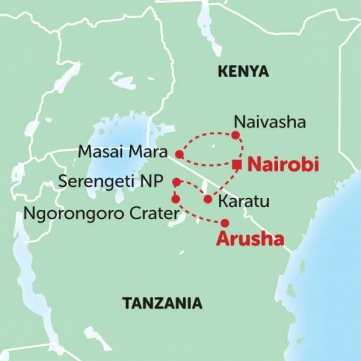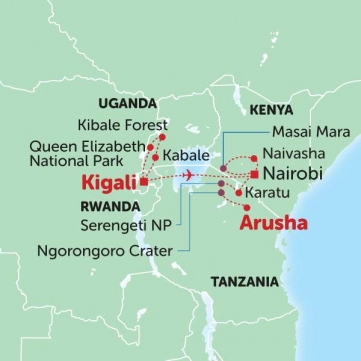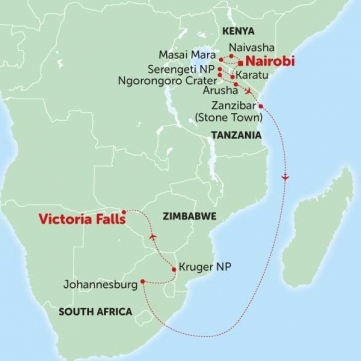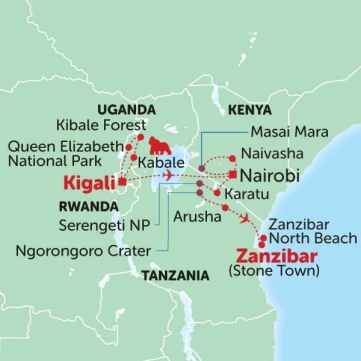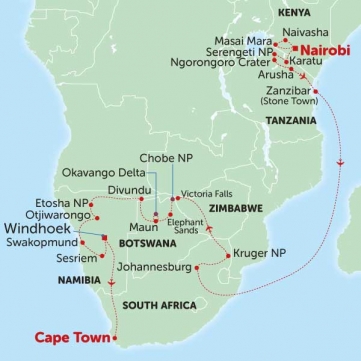Book NOW for $1 £1 €1 • Flexible Payments • No Change Fees • Private Departures Available
- Home >>
- Kenya Travel Advice
Kenya Travel Advice
Getting to Kenya
Kenya - officially called the Republic of Kenya - is situated on the coast of East Africa, along the equator. Kenya borders Ethiopia, Somalia, South Sudan, Tanzania and Uganda, with the Indian Ocean bordering the eastern side of the country.
- London to Nairobi is about an 8.5-hour flight
- Los Angeles to Nairobi takes around 21 hours
- Cape Town to Nairobi takes around 6 hours
- Sydney to Nairobi is about a 21-hour flight
- New York to Nairobi takes approximately 14 hours
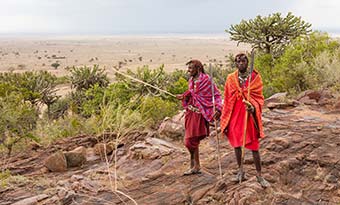
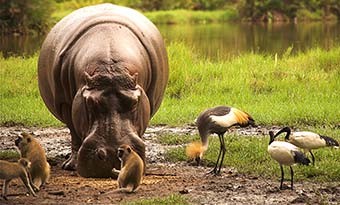
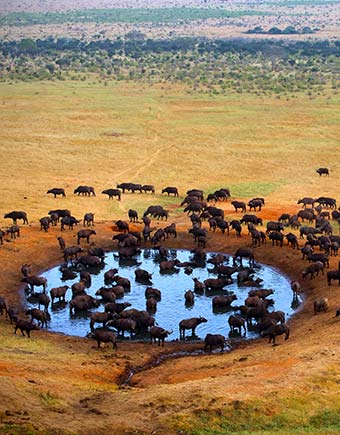
Main airport
in Kenya
There are 5 main airports in Kenya: Kisumu International Airport (KIS), Eldoret International Airport (EDL), Moi International Airport in Mombasa (MBA), Wilson Airport (WIL), with the most popular tourist airport being Jomo Kenyatta International Aiport (JKIA or NBO) in Nairobi.
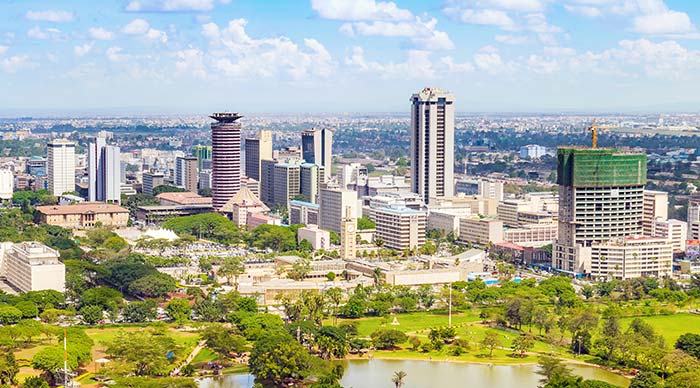
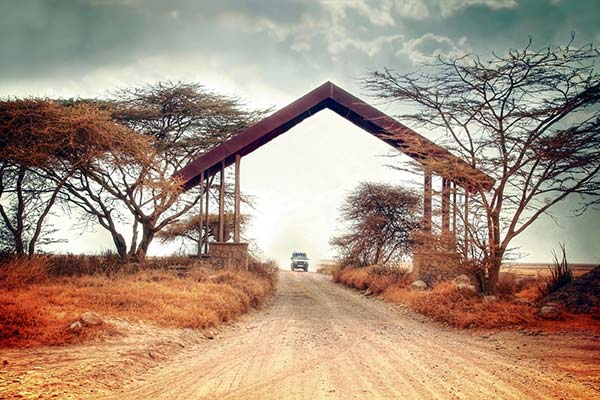
Geography &
landscape of Kenya
Situated directly on the equator, Kenya is one of the hottest countries on earth. Its terrain ranges from lowland coastal plains to central plateaus to soaring mountains, the highest being Mount Kenya, standing at 5,199 meters. Kenya is famous for its scenic landscapes and stunning nature reserves. The Kenyan coast is lined with historic ports and some of the best beaches in Africa. In central Kenya, you’ll find tea plantations, nature reserves, lakes and rivers, whilst the north will have you in a vast, barren desert.
Culture, religion
and etiquette
The majority of the Kenyan population belong to ‘Bantu’ tribes and ‘Nilotic’ tribes with about 13% of the population being non-African.
Kenya promotes freedom of religion, with around half of the population identifying as Christian, 10% as Muslim and a small section of people identifying as Hindu and Sikh. Although there is a wide range of religious groups, tribes and traditions, Kenyans are very inclusive and have strong values in group cooperation which are deeply rooted in every part of the country.
The family unit in Kenya provides the building blocks of their social structure. Extended families include both sides as well as their friends, with the husband’s parents often living in the family home once they get older. Family responsibilities always come first in a Kenyan household.
Many Kenyans believe that when an ancestor dies their spirit lives on in other’s memories. They often make offerings to their deceased and pass their names on when they have children.
When greeting each other in Kenya, it’s common to offer a handshake, but close female friends often hug and kiss each other on the cheek. When greeting an elder, however, it is proper to grip their right wrist with your left hand while shaking hands as a sign of respect. This is usually followed by pleasantries regarding their health, family or business.
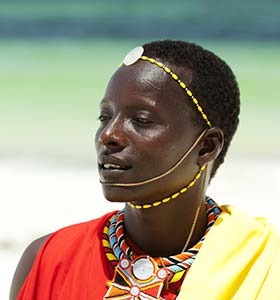
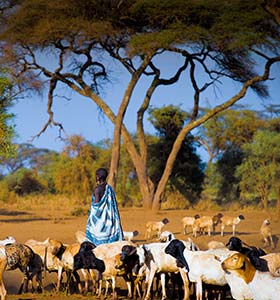
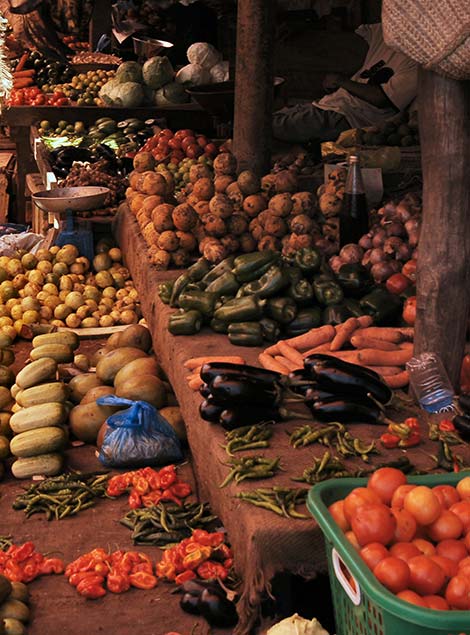
Top tip!
Many Kenyans deem it impolite to drink with your meal so beverages are usually served after.
Languages spoken in Kenya
English and Swahili are the official languages of Kenya, however being populated with over 40 main ethnic groups, Kenya is a very diverse, multilingual country. As well as the two official languages, Kenya is also made up of many different regional languages - two of the most widely spoken are Luhya and Kikuyu.
Capital city of Kenya
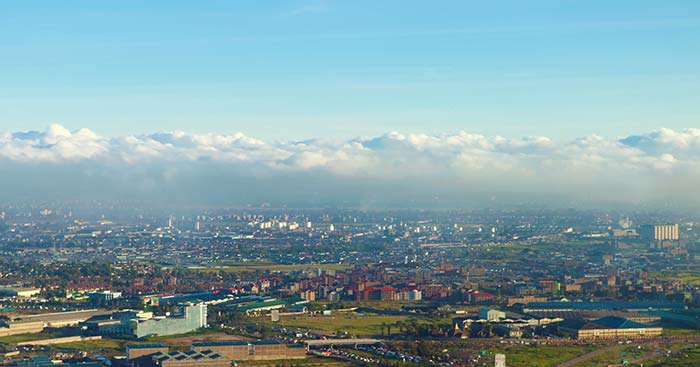
Nairobi
The capital city of Kenya is Nairobi, situated in the central-southern section of the country. Elevated at around 1,680 m high, this highland city is usually the first point of call for a tour to Kenya. Its urban centre houses Nairobi National Park, which is home to endangered black rhinos. Nairobi is also a popular destination to for a base for safari trips. This thriving, modern capital of Kenya has bounds of energy, where contrasts see true in a mix of races, tribe and origins.
Visas for Kenya
Most nationalities will need to obtain a visa before arriving in Kenya. The easiest way to do this is to apply for an e-visa online. It’s a simple online form which grants you a visa almost instantly. Kenya has no restrictions on which nationalities can enter the country, however, all visitors will need a passport with a minimum of six months remaining.
If you do not want to obtain an e-visa online, most people are eligible to request a tourist visa on arrival at the three international airports - this is the case for Europeans, Australians, New Zealanders, Americans and Canadians. Tourist visas are valid for 90 days from the date of entry and can be extended for a further 90 days.
Vaccinations & travel health
The CDC and the WHO advise for the following routine vaccinations to be up to date when visiting Kenya: Measles, Mumps & Rubella (MMR), Tetanus, Diphtheria & Pertussis (TDAP), Chickenpox, Shingles, Pneumonia, Influenza, Meningitis and Polio. They also recommend the following vaccinations for travel to Kenya: Hepatitis A, Hepatitis B, Typhoid, Cholera, Yellow Fever and Rabies.
Malaria is considered a moderate risk in Kenya so we advise all travellers to consult their GP on the best antimalarial medicine for your trip. Dengue and chikungunya are also present in parts of Kenya so make sure you are well-stocked with necessary DEET mosquito repellents.
Is it safe to drink tap water in Kenya?
It is not advisable to drink any tap water in Kenya as the sources are easily contaminated. Always stick to bottled water.
Electricity and plugs in Kenya
The plugs and sockets in Kenya are of type G which has 3 straight prongs in a rectangle, the same as in the UK. The standard voltage in Kenya is 240 V and the frequency is 50 HZ.
Emergency calls
We always advise our passengers to save emergency numbers in their phones in case they are needed. The most important one to note in Kenya is 999, which covers the police, fire and ambulance services.
Travelling as a single woman in Kenya
On the whole, Kenya is suited to solo travel. Locals tend to be friendly, ready to help and keen to strike up a pleasant conversation. Generally, you will find that Kenya feels safe as a single woman, but as always, the same level of common-sense, care and precautions should be upheld. Kenyan men are generally respectful towards women, however, you might attract a little more attention if you are in a bar alone, the same goes for the beaches which are often patrolled by male prostitutes.
Where the daytimes tend to be pretty safe for women, walking around at night, alone is not a good idea. Being robbed or raped whilst walking through the streets or along a beach is a real risk in Kenya and not one that should be taken lightly. Make sure to always take a taxi in the evenings, even if you are in a group.
Wifi and internet access in Kenya
Kenya is pretty-well connected with most hotels and guest houses having wifi. The speed, however, can differ greatly from place to place. Whilst most wildlife lodges will have wifi, the connection tends to be unreliable, especially the more remote you travel.
Time zone in Kenya
Nairobi, Kenya
Nairobi is 3 hours ahead of London (GMT), 11 hours ahead of Los Angeles and 8 hours ahead of New York (EST). Kenya follows East Africa Time (EAT) and does not switch to Daylight Savings Time. Visit timeanddate.com to calculate the time difference from your current location.
Getting around Kenya
Car Rental
Hiring a car is a popular way to travel for people who like to be on their own schedule. All national parks can be entered with a private vehicle, so it’s an excellent option if you have a group travelling together that can split the cost. If you don’t fancy driving yourself but still want the freedom, rental companies in Kenya can usually offer a driver/guide to come along with you.
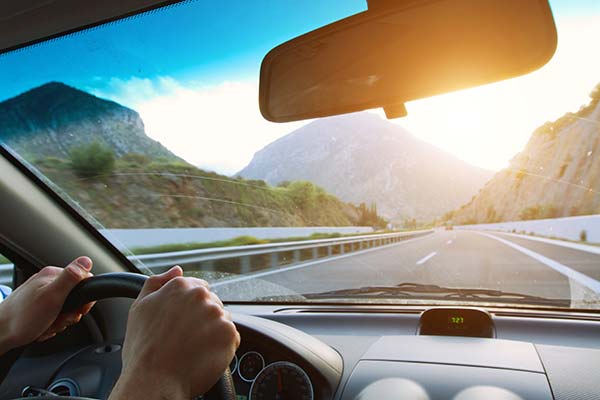
Bus
Buses are only effective in Nairobi and cover the suburbs and outer layers, but only during the day. Buses are not very popular amongst locals who tend to prefer to travel using a matatu.
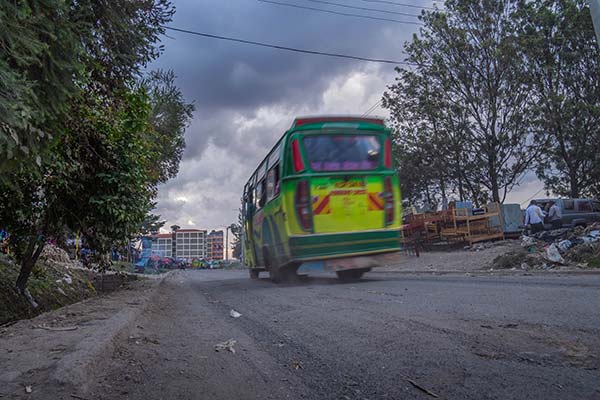
Matatu
Matatus are the main mode of transport for locals in Kenya. They can technically be any kind of large vehicle from a pick up to a mini-bus. They cover almost every major city, town and suburb, with a journey costing between 40-100 KES.
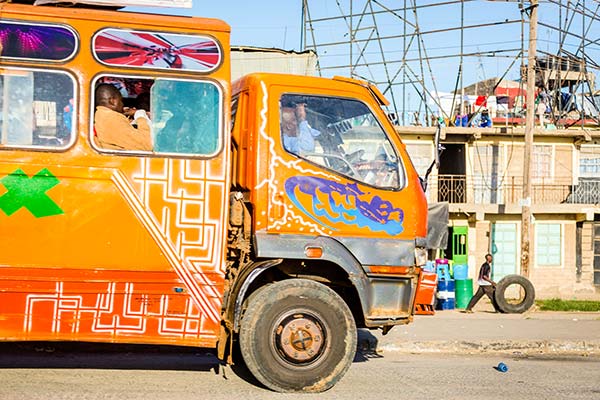
Taxi
Taxis are easily found in Kenya, even in remote villages. This is the preferred mode of transport at night. There are also shared Peugeot taxis which only leave when they are full - usually 9 passengers. These shared taxis only drive to the main points and don’t stop off in-between like the Matatus.
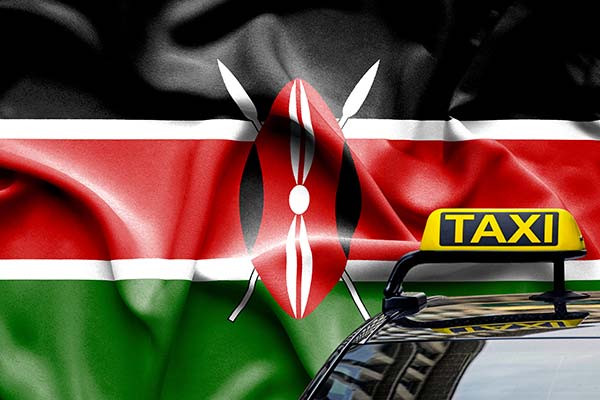
History of Kenya
The first record we have of hunter-gatherers in Kenya date back to 2,000 BC. In 800 AD, Arabs sailed to Kenya and settled along the coast, creating the Swahili culture which exists today. In 1498, the first European reached Kenya, followed by the Portuguese who dominated the Swahili coastal region for around 200 years. The Portuguese farmed new crops such as maize and cassava.
In the late 19th century, Britain took control of Kenya when the European powers divided up Africa. From 1895-1901, the British built a stable railway system making regional travel much easier. As the European settlers took to taking the best land for themselves, the African natives were forced to relocate into the reservations. During this time Indians also came to Kenya to establish working trades.
In 1921, the Africans formed the East African Association to fight for their rights and in 1927 Jomo Kenyatta became the secretary. During this time Kenya's education system grew with numerous schools being built. Resentment from Africans only continued as many fought in World War Two, only to become second-class citizens in their own country once again. Eventually, their animosity grew into the Mau Mau uprising.
The Mau Mau formed in 1952 and took oaths to kill Europeans, Kenya was declared a state of emergency that year. British troops flew in to assist in the security and safety of the country and in 1953 the British started detaining Kikuyu in concentration camps. By the end of 1956, the uprising was over.
Africa still strove to become an independent country and in 1961, the Kenya African National Union was formed with them winning seats in the Kenyan assembly and finally declaring independence in 1963. Shortly after, Kenya joined the Commonwealth. During the 1960s and 70s, Kenya's agricultural industries boomed.
In 1982, Daniel Arap Moi became leader after Kenyatta died, and banned any opposition political parties, strengthening his power over the country. But in 1991 he was forced to allow other political parties to run. This, however, didn’t stop him from being reelected in 1992 and 1997.
In 1998 a bomb in the US embassy in Nairobi killed 224 people which caused a near-halt to tourism in Kenya. In 2002 Mwai Kibaki came into power, enabling free primary education to Kenya. Today Kenya’s economy is still developing and growing at a steady rate.
Featured Tours





